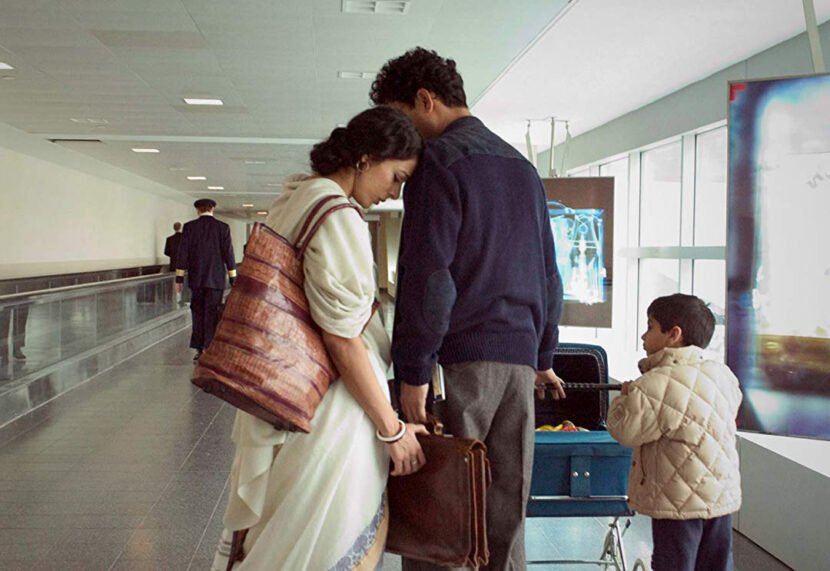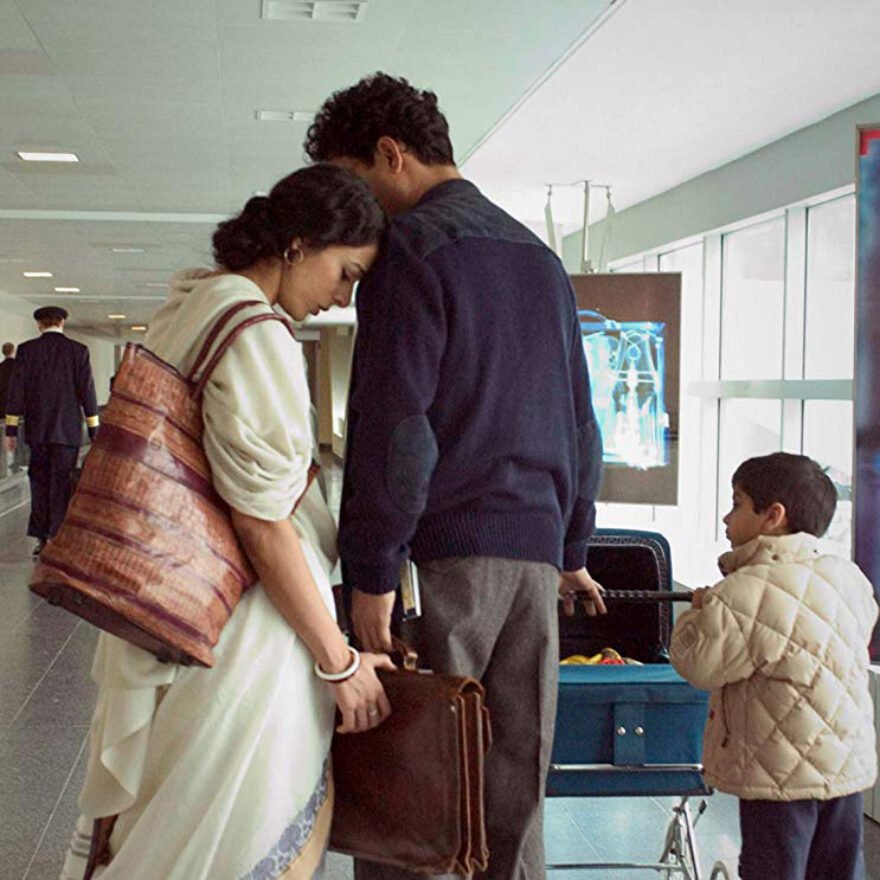I don’t remember exactly when I first watched The Namesake, but I remember how it made me feel. Like someone had finally put the quiet, complicated emotions of my family into words. Into film.
Mira Nair’s The Namesake hit me in the chest. Hard. Not because it’s a tearjerker (though it absolutely is), but because it felt like someone had peeked into my immigrant family’s life—and said, “This matters.”
My Mother in Ashima
The scenes with Ashima walking through snowy Queens in her sari? Struggling to make sense of this cold, confusing new world? That was my mother. She came to New York in her 50s, barely spoke English, and lived in the city for decades—without ever truly feeling like it was hers. She was smart and fierce, but she often looked out the window like she was still waiting for something to arrive. Or maybe for something she left behind in India to catch up with her.
Watching Ashima’s loneliness and quiet strength on screen broke me. I could finally see my mom’s experience, not just through memory, but through cinema. I cried, obviously. And then I called her. She didn’t pick up (classic), but the next time we talked, I told her, “There’s this movie… and it reminded me of you.”
Gogol’s Struggle = All of Us
Gogol, or Nikhil, or whatever name he’s trying on that day—he’s the heart of the movie. That push-pull between your parents’ culture and your own identity is so real for any of us raised in two worlds. You don’t want to reject your roots, but you also want to live life on your own terms. I’ve lived that tug-of-war. And I still do.
Kal Penn surprised me here—no Harold, no Kumar—just quiet, messy emotion. His journey is painfully familiar if you’ve ever felt like you don’t fully belong in either place you call home.
Visually Gorgeous, Emotionally Honest
One thing Mira Nair does so well: show the contrast between “there” and “here.” The film flips between the warmth and color of Calcutta and the cold, grey tones of New York. It’s jarring—and perfect. It captures what it feels like to be in-between two cultures. To carry one in your heart while trying to survive in the other.
The Parents Steal the Show
Yes, Kal Penn is great, but Irrfan Khan and Tabu as Ashoke and Ashima? They are the soul of the film. Understated. Heartbreaking. Real. They don’t say much, but every glance, every pause, every silence? It speaks. They reminded me of so many quiet Desi parents I grew up around—never loud, always loving in their own way.
Why This Film Still Matters
The Namesake isn’t just about immigration. It’s about identity, grief, compromise, and home. It’s about trying to hold on to your past while reaching for your future. It’s about all the things we carry when we move across oceans—or even just across generations.
For me, it was a reminder that my family’s story is worthy of being told. That there’s power in quiet resilience. And that sometimes, the most moving stories are the ones that look a little like your own.
TL;DR: The Namesake made me cry, made me call my mom, and made me feel seen. It’s not just a film. It’s a mirror. One that reflects the ache, the beauty, and the strength of the immigrant experience with grace.






